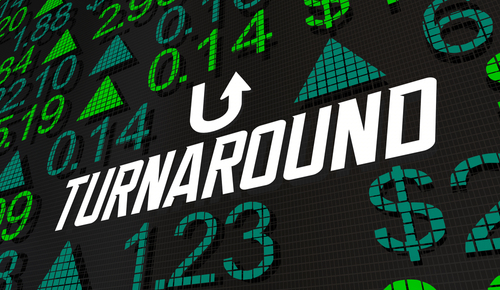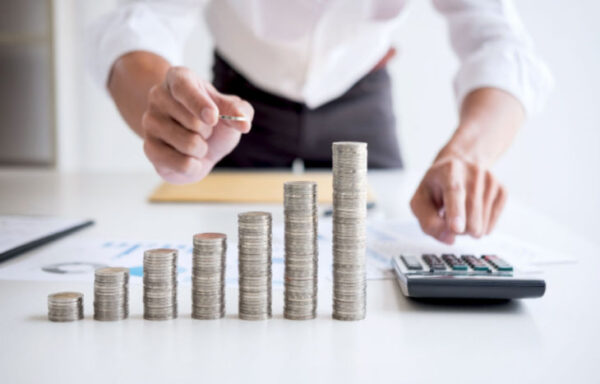The Coronavirus, the Market… and Rational Exuberance
- Some investors have argued that we are in a bubble right now – that stock valuations are unjustified.
- But Alexander Green’s keen market analysis shows that they’re mistaken. Here’s why.
In 1996, then-Federal Reserve Chairman Alan Greenspan used a phrase that soon became part of the vernacular.
“How do we know,” he asked, “when irrational exuberance has unduly escalated asset values?”
How indeed? It’s a fair question. And here’s a short answer.
Investors unduly escalate asset values – dangerously and temporarily – when unjustifiable valuations are paired with extreme optimism about the future.
Recall sentiments like “the internet changes everything” during the tech bubble of the late 1990s or “real estate always goes up” during the housing bubble 15 years ago.
Prices for both were completely insane at the time.
But many investors subscribed to the greater fool theory, saying, in effect, “I’m a fool to pay these prices but some greater fool will come along and pay even more.”
They bet that prices would continue to climb. And they were right… for a while.
Then things came crashing down, costing speculators – as well as prudent investors caught up in the hoopla – a bundle.
I hear some commentators say that we are in a similar bubble today, that fundamentals can’t justify the tremendous bounce off the March 23 bottom.
However, stocks were oversold in late March, as they always are when investors sell in a panic.
Yes, the economy is still contracting and unemployment claims are still mounting. But stock market investors are looking ahead and seeing a return to normal.
Stock valuations are not extreme. And no one is giddy about the economic outlook.
Ergo, there is no bubble in the market right now.
That doesn’t mean stocks will continue to go up, however, or even maintain the levels we’ve reached.
The news – and the outlook – could easily change tomorrow.
But investors have quite rationally priced in the reality that…
- COVID-19 is less lethal than originally believed.
- Unprecedented fiscal stimulus and central bank liquidity will help us through the recession.
- States are gradually reopening.
- A coronavirus vaccine will be here sooner than most expect.
About this last item, some readers insist that “health experts” disagree.
But experts can’t have expert knowledge on everything in their domain, especially when it involves gee-whiz, cutting-edge science.
Most, for instance, don’t know the first thing about messenger RNA (mRNA).
A few months ago, I recommended Moderna (Nasdaq: MRNA) – note the symbol – to subscribers of my Insider Alert service, after one of the company’s directors made a seven-figure purchase of the stock.
Moderna was the first biotech to submit a coronavirus vaccine for human testing.
Recently released Phase I results showed that all the trial subjects developed coronavirus antibodies with minimal or no side effects.
The company expects its vaccine to be available for emergency authorization by this fall.
“That’s impossible,” an immunologist told me the other day. “A vaccine could not possibly be ready that quickly.”
He’s wrong. Government regulators and scientists are collaborating with a speed and effectiveness never seen before.
Moreover, Moderna’s vaccine is based on a synthetic version of mRNA.
As my friend Ron Bailey, science correspondent for Reason magazine, writes…
The promise of mRNA vaccines is that they are faster, cheaper and safer to produce than are conventional vaccines. Conventional vaccines are finicky to make. Manufacturers have to figure out how to grow viruses in eggs or mammalian cells, purify and weaken them so that they don’t cause infection when injected, and then scale up production to make millions of doses. This can take years to achieve. In contrast, templates for the production of the synthetic viral mRNA to be used in a vaccine can be quickly developed and scaled up with relative ease.
Moderna has partnered with Swiss pharmaceutical manufacturer Lonza to produce a billion doses of the vaccine per year.
True, no mRNA vaccine has ever been deployed before. But this one looks like it will work.
Good thing we didn’t listen to the “experts.” The stock market is up more than 30% despite “no near-term hope for a vaccine.”
And we closed out our position in Moderna in three months with a 190% gain in the stock and profits of 126%, 332% and 955% in a related call.
Irrational exuberance is real. But so is rational exuberance.
The recent stock market rally was an example of the latter.
About Alexander Green
Alexander Green is the Chief Investment Strategist of The Oxford Club, the world’s largest financial fellowship. For 16 years, Alex worked as an investment advisor, research analyst and portfolio manager on Wall Street. After developing his extensive knowledge and achieving financial independence, he retired at the age of 43.
Since then, he has been living “the second half of his life.” He runs The Oxford Communiqué, one of the most highly regarded publications in the industry. He also operates three fast-paced trading services: The Momentum Alert, The Insider Alert and Oxford Microcap Trader. In addition, he writes for Liberty Through Wealth, a free daily e-letter focused on financial freedom.
Alex is also the author of four New York Times bestselling books: The Gone Fishin’ Portfolio: Get Wise, Get Wealthy… and Get On With Your Life; The Secret of Shelter Island: Money and What Matters; Beyond Wealth: The Road Map to a Rich Life; and An Embarrassment of Riches: Tapping Into the World’s Greatest Legacy of Wealth.






